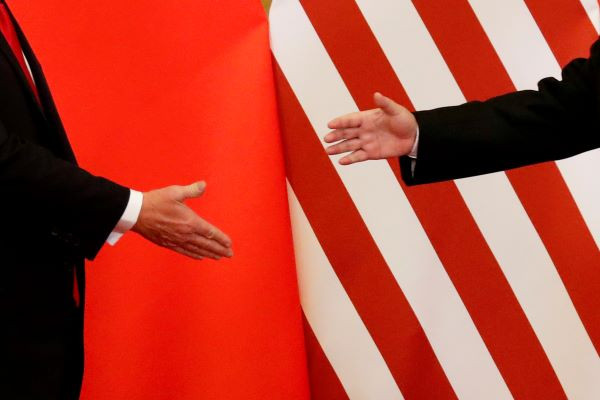President Donald Trump escalated his trade war rhetoric Wednesday, calling China the world's "chief-ripper-offer" and defending his 145% tariffs on Chinese imports, even as concerns mount over potential economic fallout on both sides of the Pacific. Despite public statements from the White House that negotiations are underway, China's government has denied that direct talks are currently taking place.
"We've been ripped off by every country in the world, but China I would say is the leading ... candidate for the 'chief-ripper-offer,'" Trump said during a Cabinet meeting. He dismissed warnings of retail shortages, saying: "Maybe the children will have two dolls instead of 30 dolls, and maybe the two dolls will cost a couple of bucks more."
Trump's remarks come amid deepening tensions and no public indication of meaningful diplomatic engagement. China's Foreign Ministry spokesman Guo Jiakun stated, "As far as I know, there have not been any calls between the two presidents recently." He denied that tariff negotiations are underway between Beijing and Washington.
The U.S. president's latest comments follow his administration's imposition of sweeping tariffs-up to 145%-on Chinese imports. The White House argues the U.S. economy is less dependent on China than the reverse, but Chinese President Xi Jinping's lack of urgency to reengage diplomatically suggests Beijing sees strategic value in waiting.
Treasury Secretary Scott Bessent has asserted that China is more vulnerable, predicting the loss of up to 10 million Chinese jobs. "I believe that it's up to China to de-escalate, because they sell five times more to us than we sell to them," Bessent told CNBC. Commerce Secretary Howard Lutnick, however, contradicted Bessent's role in the talks, telling Newsmax that trade negotiations with China are Bessent's "responsibility," though Bessent has insisted Trump is personally leading discussions.
China, meanwhile, has been actively seeking to bolster domestic demand and diversify its export markets. The government has implemented consumer stimulus programs including appliance rebates, car trade-in incentives, and retail vouchers. It recently unveiled new policies aimed at "vigorously boosting consumption."
E-commerce sales by low-cost Chinese retailers are gaining traction in Europe, while the government's messaging has taken a nationalist turn, urging consumers to support homegrown brands amid what Beijing frames as unfair foreign targeting.
Still, risks to China's economy remain. Export orders have dropped significantly, and some manufacturers could face sharp contractions if U.S. demand continues to fall. But as Tianchen Xu, senior economist at The Economist Intelligence Unit, observed, "If the export sector is really struggling and it leads to a substantial rise in unemployment and social stability risks, then I think they will be quite decisive in terms of providing more support."
Despite the economic risks, China appears prepared to absorb the shock. The political structure in Beijing offers Xi insulation from the immediate pressure Trump may face heading into an election cycle. Analysts say the tariff dispute could generate more immediate domestic political heat in the U.S. than in China.
The current deadlock comes amid a broader geopolitical recalibration, with both economies experimenting with self-reliance. Trump's trade team claims the U.S. is ready for short-term disruptions, including potential shortages. "They have ships that are loaded up with stuff, much of which, not all of it, but much of which we don't need," Trump said.






